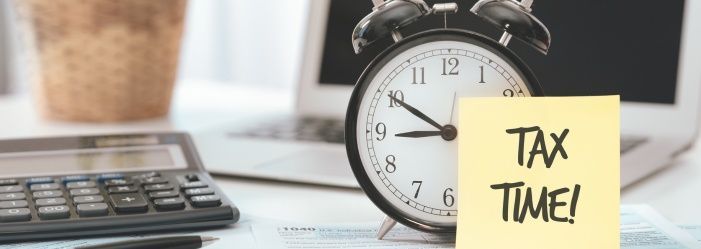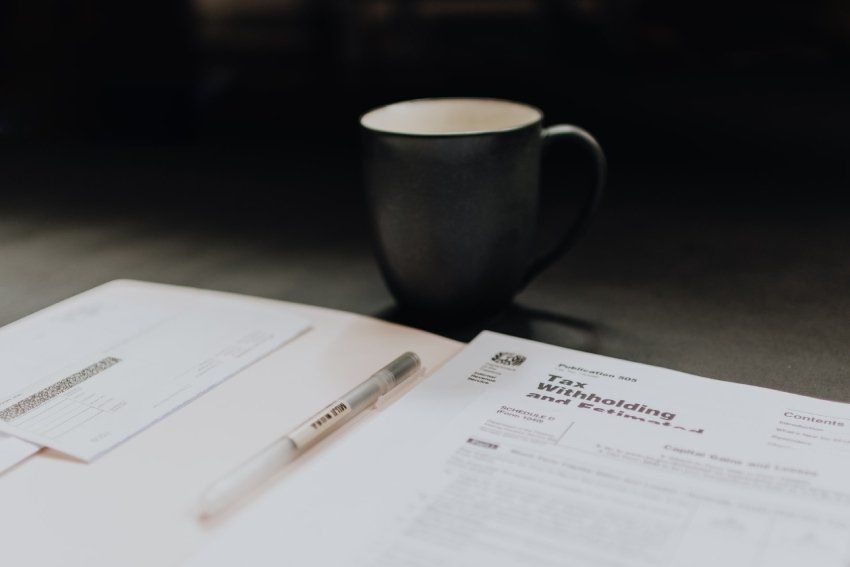Last Updated: March 11, 2024
The Consequences of Late Taxes

Disclaimer: We are not qualified legal or tax professionals and are not giving advice. Always speak with a qualified professional before making any legal or financial decisions.
Every year, countless Americans find themselves facing the April 15th tax deadline with a sense of dread. Whether it's due to unexpected life events, confusion about the tax process, or simply procrastination, failing to file your taxes on time can lead to significant penalties from the IRS.
But what exactly are these penalties, and more importantly, how can you avoid or minimize them if you're running late?
In this post, we'll immerse ourselves into the consequences of late tax filing, break down the penalties you could face, and offer expert advice on steps you can take to navigate this stressful situation. Whether you're a first-time filer or you've been through the process before, understanding these penalties and how to avoid them can save you money and stress.
Don't want to read through? Speak to a debt specialist right now.
The Penalty for Filing Taxes Late
There are two different penalties levied depending on if you owe money or if you fail to file your taxes.
Daily Compounded Interest
In addition to the penalties on both, you are also charged a daily compounded interest on what you owe. This interest rate is set every three months based on the federal short-term interest rate plus three percentage points. At the time of writing, it is 3%. Effectively, it makes your monthly non-payment penalty 0.5025% and the non-filing penalty 5.0025%.
A daily compounded interest means that you pay interest on your interest and penalties. It adds up very quickly! And while the penalties may cap, the interest accrual does not.
Extenuating Circumstances
Occasionally, the IRS will forgive the penalty if you have a good excuse. They cannot forgive the accrued interest. Call or attach a written explanation with your filing. It may help lessen your payments.
As Benjamin Franklin wrote, “nothing is certain but death and taxes.” You need to file your federal (and state) income taxes by April 15 (May 17 for 2021) or file for an extension by that date. An extension generally gives you until October 15 to file, although varies between 60 days and 180 days. If you owe money, you need to pay it by April 15 (May 17 for 2021) to avoid paying a penalty, regardless if you have filed!
Actionable Tips
Here are 3 steps you can take right away to start getting your debt under control:
- Review your budget and see where you might be able to cut back on discretionary spending to free up more money for debt payments. For example, limiting restaurant meals or other entertainment expenses even temporarily could make an impact.
- Contact your creditors directly to see if they can offer you lower interest rates or different payment plan options to help lower your monthly payments. Being proactive goes a long way.
- Consider consulting with a non-profit credit counseling agency to go over your full financial situation. They can often negotiate with creditors on your behalf to lower interest rates as well.
For more help getting out of debt, check out these other resources on our site:
- How to Improve Your Credit Score While Paying Down Debt
- When Should You Consider Debt Settlement?
- Budgeting Tips When You Have High Debt
FAQs
Pacific Debt, Inc.
Pacific Debt is an award winning debt settlement company. If you’d like more information on how to get out of debt, we are happy to help. We will explain all your options and help you decide which is the best option for you. We can even refer you to trusted partners who can better meet your needs.
If you have more questions, contact one of our debt specialists today. The initial consultation is free, and our debt experts will explain your options to you.
*Disclaimer: Pacific Debt Relief explicitly states that it is not a credit repair organization, and its program does not aim to improve individuals' credit scores. The information provided here is intended solely for educational purposes, aiding consumers in making informed decisions regarding credit and debt matters. The content does not constitute legal or financial advice. Pacific Debt Relief strongly advises individuals to seek the counsel of qualified professionals before undertaking any legal or financial actions.
✔ Accredited by Better Business Bureau with BBB A+ rating (4.93 rating and 1678 reviews)
✔ US News and World Reports and Bankrate ranked Pacific Debt Relief as one of “The Best Debt Relief Companies of 2024”
✔ 6.9 star rating by BestCompany.com (over 2379 client reviews)
✔ 4.8 star rating by TrustPilot based (over 1613 verified consumer reviews)
✔ ConsumerAffairs.com Accredited (over 544 verified reviews with an average rating of 5 stars)
✔ A Top 10 Rated Compan by TopTenReviews.com , ConsumersAdvocate.com and Top10debtconsolidation.com
✔ 4.6 star rating by Google (229 client reviews)
✔ 100% rating by SuperMoney (9 client reviews)
Reduce Your Credit Card Debt By Up to Half

BBB Reviews | 4.9/5.0 Rating









 Do Not Sell My Personal Information
Do Not Sell My Personal Information